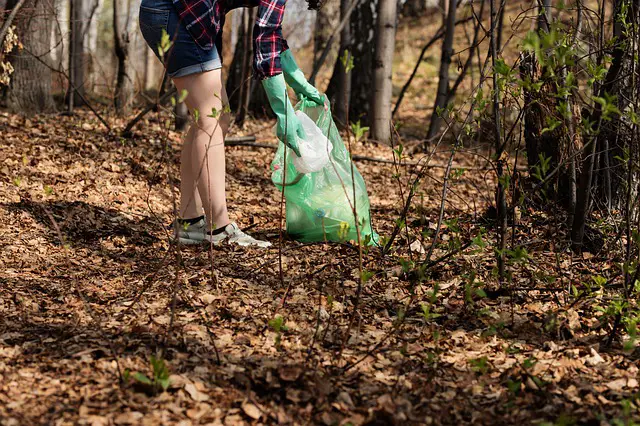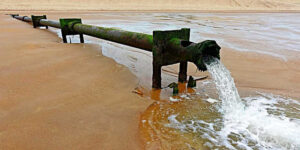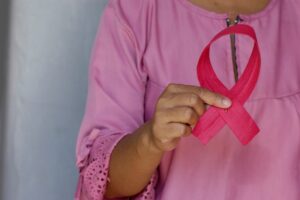Plastic pollution is an everyday problem. These 10 Simple Steps to Reduce Plastic Pollution can help us all in the long run.
-
Recycle used plastic
Recycling plastic that has already been produced prevents it from being discarded in the environment and causing harm to animals and humans. According to National Geographic, only 9% of all the plastic produced has been recycled globally. This data creates a need to recycle more plastics instead of producing new ones. Websites such as Earth 911 have been developed in North America to enable people to earn from collecting and disposing of harmful plastic waste appropriately.
-
Campaigns to stop plastic pollution
Most organizations and stakeholders worldwide have initiated campaigns to create awareness and advocate for less use and proper disposal of plastic wastes. Organizations participating in campaigns to ban plastics include Greenpeace, OCEANA, Save our Shores, Plastic pollution coalition and Plastic Soup Foundation. More organizations should initiate such campaigns to educate people on plastics’ effects on the environment to end plastic pollution. The initiatives will ensure a zero plastic polluted environment for people of all nations.
-
Ban on the use of Plastic bags
Global citizen report states that some countries have imposed taxes or banned plastic use due to its effects on the planet. Kenya, for instance, banned plastic bag use with a penalty of $1900 or imprisonment to prevent plastic pollution. For example, more countries across the world, for example, Uganda, where plastic bags are being used in large quantities, need to heed this call on plastic ban. The ban will create sustainable cities worldwide by ensuring both dry land and water bodies are free from plastic pollution. This Simple Steps to Reduce Plastic Pollution can help us all in the long run.
-
Purchase of second hand instead of new plastic
Plastics do not decompose quickly, and a majority have a lifespan of up to 1000 years. Instead of buying new household items made from plastic, people are now purchasing second-hand items from thrift shops and markets. The purchase of second-hand plastic prevents the constant need to manufacture new plastics and also saves the buyer a few dollars that they could have used to purchase the plastic item. Since plastics do not degrade quickly, they can be used for an extended period, and once they are no longer needed, they can be sold to second-hand customers.
-
Use of Reusable shopping bags.
According to Tote Bag Factory, reusable shopping bags are essential in preventing plastic pollution and conserving the environment. The bags are strong and durable and used for a long time before they are disposed of appropriately. Using reusable bags instead of plastic bags also cuts on the costs incurred, purchasing a bag whenever required because the bags are long-lasting. The reusable bags are used for various purposes. For example, they can be used during shopping and also in the storage of personal effects. This Simple Steps to Reduce Plastic Pollution can help us all in the long run.
-
Discouraged use of Microbeads
The Irish Times is one of the articles used to discourage people from using products with microbeads. Microbeads are tiny plastics used in the manufacture of household items like toothpaste, cosmetics and shower gel, which, when washed down the drain, ends up in the soil and water bodies leading to pollution and affecting the marine life, environment and humans. When shopping for products, people are advised to check for the product ingredients and avoid products that contain nylon or any plastic chemicals and opt for those with natural biodegradable ingredients.
-
Discourage Single plastic usage
Single plastic usage mainly occurs when people purchase foods and drinks packaged in plastics, then consume the foodstuff and dispose of the plastic packages. Single plastic use is greatly discouraged globally to stop plastic pollution. Clean River is one of the organizations that discourage using plastic items like plastic plates, knives, cups, bottles, shopping bags and straws. The organization encourages people to opt for non-plastic items from companies that advocate for the environment to prevent plastic pollution. Social media campaigns are conducted to create awareness and empower people to make informed choices during purchases.
-
Plastic clean up initiatives
The Ocean cleanup is one nonprofit organization with a global initiative of cleaning up 90% of the ocean plastic pollution. The organization aims to close the sources of plastic pollution and clean up the ocean surface that has been polluted by plastics globally. Advanced technology is being used in such projects to ensure that plastics do not continue to affect the ecosystem and destroy the planet. The various local and international organizations have partnered towards ocean, beach, and general environment cleanup initiatives to save the environment from the severe effects of plastic pollution. This Simple Steps to Reduce Plastic Pollution can help us all in the long run.
-
Innovations from plastic
Globally, innovation is encouraged mainly to solve some of the global challenges like plastic pollution. It is with regard that, The New Plastic Economy organization was formed in 2017 to encourage entrepreneurs, scientists and designers to partner with policymakers, businesses and investors to develop innovations from plastics to prevent plastic packaging waste. A grand prize of $2million is awarded to the most innovative innovation. Innovations have, therefore, encouraged brands and packaging companies to use packages that can be recycled and decomposed. Global brands that utilize large amounts of plastics like Coca-Cola need to join the movement and opt for environmentally safe packaging materials for their brand. This Simple Steps to Reduce Plastic Pollution can help us all in the long run.
-
Behavior Change in local communities (Simple Steps to Reduce Plastic Pollution)
Community behavior change is significant in shifting from the use of harmful plastic to the environment. Plastic Behavior Change Research conducted by Less Plastic Organization encourages informed community behaviors against plastics to prevent plastic pollution in the environment. Community behaviors determines community calls for actions to prevent plastic pollution. The need for community advocacy to create awareness and encourage recycling, reusing and refusing the single use of plastics in their homes is met by government and stakeholders taking part in sustainable behavior change projects.
References
- “The New Plastics Economy: Rethinking the Future of Plastics & Catalyzing Action.” Org, 2021, https://cutt.ly/7xP6YnV
- “The Plastic Problem: How Does Plastic Pollution Affect Wildlife?”. Co.Za, 2021, https://cutt.ly/YxP67rV
- “The Connection between Plastic Waste and Climate Change.” org, 2021, https://www.wwf.org.au/news/blogs/plastic-waste-and-climate-change-whats-the-connection#gs.x178us.
- Org, 2021, https://www.ciel.org/wp-content/uploads/2019/02/Plastic-and-Health-The-Hidden-Costs-of-a-Plastic-Planet-February-2019.pdf.
- Cagle, Susie. “Humans Have Made 8.3Bn Tons Of Plastic Since 1950. This Is The Illustrated Story Of Where It’s Gone”. The Guardian, 2021, https://www.theguardian.com/us-news/2019/jun/23/all-the-plastic-ever-made-study-comic.
- “An Underestimated Threat: Land-Based Pollution with Microplastics.” Science daily, 2021, https://www.sciencedaily.com/releases/2018/02/180205125728.htm.
- “Five Ways That Plastics Harm The Environment (And One Way They May Help).” Forbes, 2021, https://www.forbes.com/sites/grrlscientist/2018/04/23/five-ways-that-plastics-harm-the-environment-and-one-way-they-may-help/?sh=68e3cd8c67a0.
- “Campaign.” Oceana USA, 2021, https://usa.oceana.org/our-campaigns/plastic.
- “The Hidden Water in Everyday Products – Water Footprint Calculator.” Water Footprint Calculator, 2021, https://www.watercalculator.org/footprint/the-hidden-water-in-everyday-products/.
- “Reasons You Should Use Reusable Grocery Bags.” Com, 2021, https://totebagfactory.com/blogs/news/8-reasons-you-should-use-reusable-grocery-bags.
- “How to Avoid Microbeads Products”. The Irish Times, 2021, https://cutt.ly/YxAqAtk
- The toolkit, Waste et al. “5 Ways to Avoid Single-Use Plastic – Clean River”. Clean river, 2021, https://cleanriver.com/ways-to-avoid-single-use-plastic/.
- “5 Innovations That Could End Plastic Waste | Greenbiz”. Com, 2021, https://www.greenbiz.com/article/5-innovations-could-end-plastic-waste.
- “Plastic Behaviour Change Research – Less Plastic.” Less plastic, 2021, https://www.lessplastic.org.uk/plastic-behaviour-change-research/.
- “Oceans | the Ocean Cleanup.” The Ocean Cleanup, 2021, https://theoceancleanup.com/oceans/.







